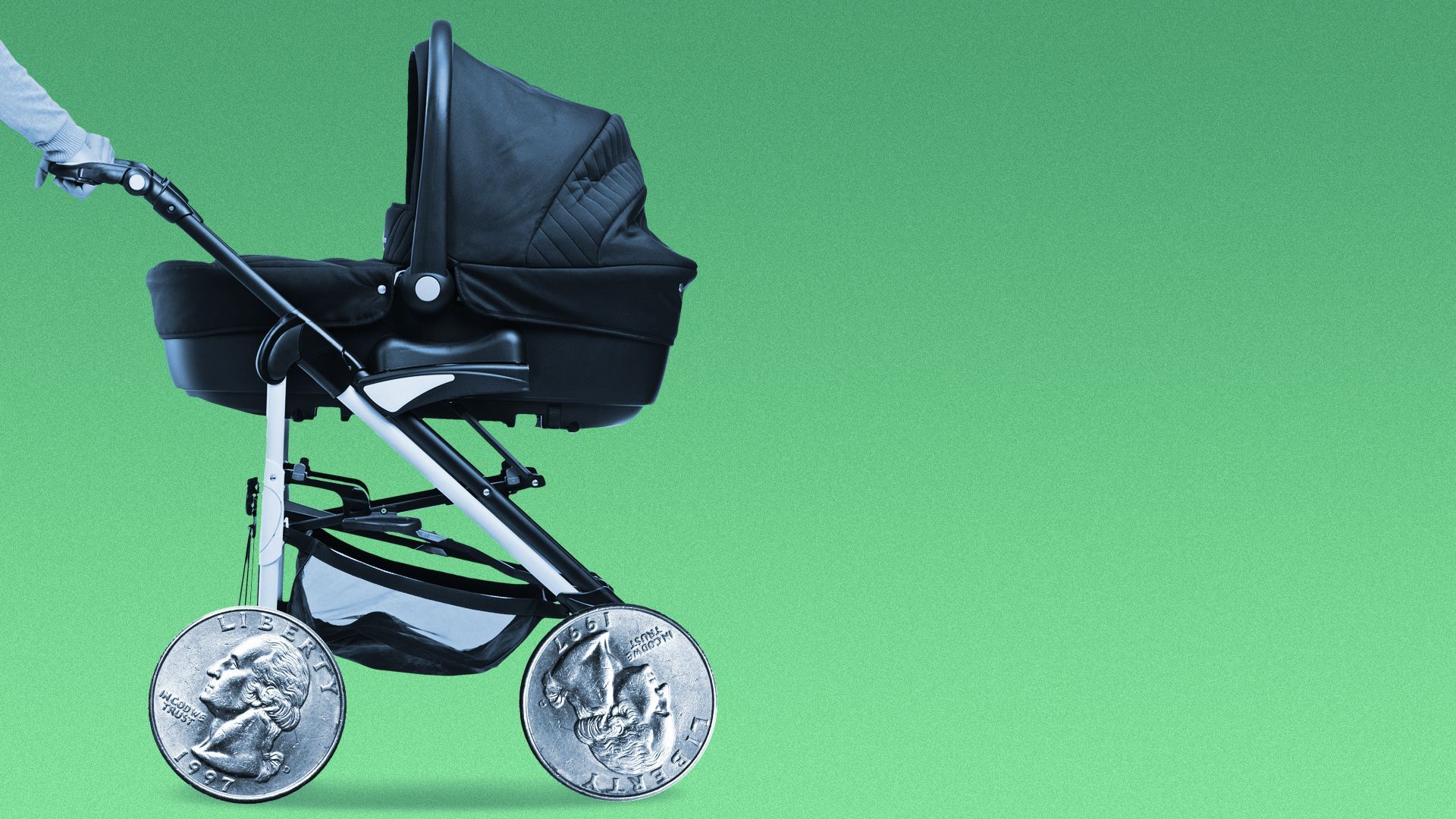Higher payroll tax rate could be needed to fund new paid family leave program
Add Axios as your preferred source to
see more of our stories on Google.

Illustration: Shoshana Gordon/Axios
Minnesota's new paid family and medical leave program may cost more than originally projected.
Catch up fast: The state-run benefit, approved by the DFL-controlled Legislature this year, will provide most workers up to 12 weeks off with partial pay to care for a new baby, deal with a serious illness, or aid a sick family member.
- Lawmakers approved an added 0.7% payroll tax, which can be split between the employer and the employee, to pay for the benefits starting in 2026.
Yes, but: An independent analysis commissioned by the state Department of Employment and Economic Development estimates that the tax will need to rise to 0.92% — a 31% increase — by the second year to generate enough money to meet demand, fluctuating between 0.78% and 0.83% in subsequent years.
- An alternative model recommended in the report would hike the tax to 0.78% for the first three years and 0.83% after that to provide more consistency.
Zoom in: That 0.78% rate would translate to about $50 in total additional costs a year for a worker making $60,000 after taxes, per the Minnesota Reformer.
Zoom out: Most states that offer paid family leave now have tax contribution rates in a similar range, the report found.
- Washington started lower but now has ramped up to 0.8% to cover shortfalls. Several others are at 0.9% or 1.0%.
Of note: The report notes that the analysis is an estimate based on current data. The actual costs will vary based on demand, and the workforce, among other factors.
What they're saying: In a statement this week, House Republican Leader Lisa Demuth slammed the "soaring" costs, saying it will put "every Minnesotan in the difficult position of having even more taxes taken out of their paycheck every month to pay for a benefit they may have already been receiving."
The other side: DFL Sen. Alice Mann, who was one of the sponsors of the bill, countered that the estimates are in line with what lawmakers initially thought. The bill caps the tax at 1.2%.
- "It's right in line with what we were thinking, and I'm not surprised by anything in there," she told the Reformer.
What's next: A spokesperson for DEED said the agency is "carefully reviewing these recommendations" as it continues to work to get the program up and running.
